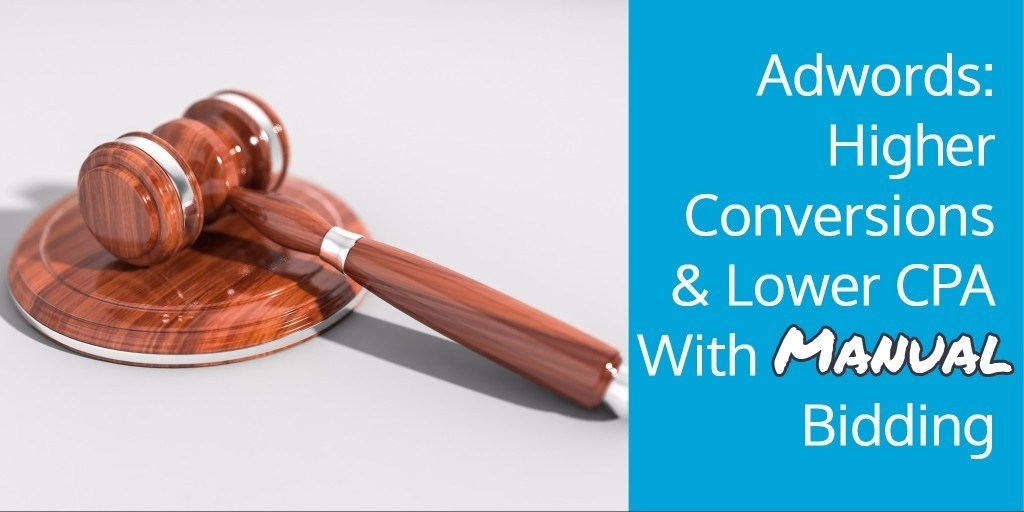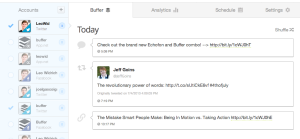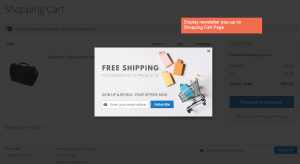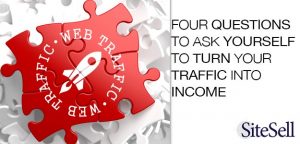
AdWords is an excellent source of high-converting web traffic. I have had colleagues that have used AdWords to generate over 50% of their business for several years. But for marketers without a background in PPC, Adwords can be hard to crack.
One of the biggest challenges new marketers face is developing a sound bidding strategy. Should they use the automated bidding option or set their bids manually?
The automated bidding option may seem tempting, but it tends to cost more over the long run…
How Does The Automated Bidding Strategy Work?
Automated bidding uses algorithms to predict the bid levels needed to get the most conversions.
Your conversion goals determine the automated bidding strategy. That means different advertisers may pay different bids for the same keywords with the same quality scores.
In theory, this sounds like a great idea. Marketers that have mastered SEO and content marketing often cringe at the idea of raising their bids. Many worry they will overpay for traffic and have difficulty breaking even on their campaigns. Others bid much higher than they need to, which makes their campaigns costlier than they should be. The automated bidding strategy sounds like it could help them get around that.
But… the automated bidding strategy also tends to be costlier and have a lower ROI.
Here are some of the biggest reasons you should avoid placing automated bids and set them manually instead.
Inability To Set Bids On Individual Keywords
When you use automated bidding, AdWords algorithms adjust bids for each of your keywords.
Automated bidding aims to maximize visibility during peak hours for better conversions. The problem is that they can’t tell which keywords convert best for your lead funnel.
If you find a high converting keyword, you should try to generate as much traffic from it as possible. Automated bidding doesn’t have that flexibility.
Automated bidding could work after you have already tested and filtered your keyword list. It doesn’t work well during the keyword testing phase.
Optimizing For Demographics
Some demographics are going to convert much better than others. And AdWords provides demographic targeting, which is important. (In fact,targeting millennials on PPC is very important in 2017).
Automated bidding can miss out on that. Instead, use a manual bidding strategy until you have defined your target audience better.
Wasted Impressions And Clicks On Broad Terms
There are a couple of strategies for setting up AdWords campaigns.
One option is to start by building a massive list of keywords with exact matching. Another option is to use broad matching and begin adding negative keywords to your list.
The benefit of the second approach is that you find a lot of keywords other marketers miss. They are often very long-tail and receive too little volume to appear in the AdWords Keyword Planner.
The only issue with broad targeting and negative keywords is that you have to be careful monitoring your keywords. You need to immediately add any irrelevant words toyour negative keyword list to avoid losing money onthem.
Unfortunately, with automated bidding, you may end up getting impressions and clicks too quickly. This can cost you a lot of money and hurt your quality score.
Day-Parting Concerns
You will probably notice that your campaigns perform better at some periods than others. The problems is that it is difficult to know when a campaign will work best without testing it first. The algorithm may make assumptions that are completely off-base.
It is better to set your own schedule for your ads, which may mean raising bids during periods of peak performance.
Overbidding
Google promotes automated bidding platform as a win for advertisers. But their motives aren’t altruistic.
They are a business and have an incentive to pressure their advertisers to spend more. Their automated bidding algorithm is almost certainly programmed to drive up bids.
* Adapted lead image: Public Domain, pixabay.com via getstencil.com
The post Adwords: Higher Conversions & Lower CPA With Manual Bidding appeared first on Search Engine People Blog.
(90)
Report Post







